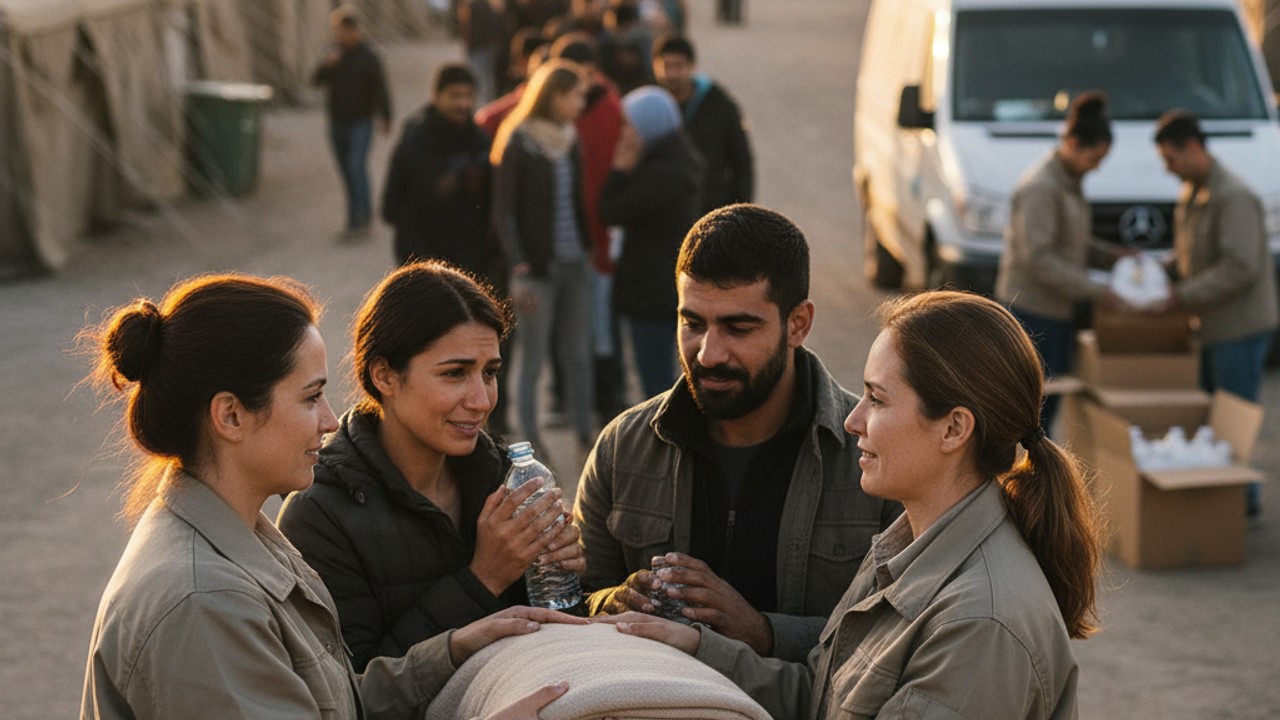At a crowded border crossing, a child clutches a single blanket while their mother counts the steps to safety. That blanket can mean the difference between life and death in the hours after displacement. By the end of 2023, 114 million people were forcibly displaced worldwide, the highest figure on record, a number that turns faces into statistics and stories into urgent calls for action. UNHCR Global Trends 2023 reports this staggering total, while the United Nations Office for the Coordination of Humanitarian Affairs warns that an estimated 339 million people will need humanitarian assistance in 2025. UNOCHA Global Humanitarian Overview 2025
Why it matters
When displacement happens at scale—because of conflict, climate disasters, or sudden economic collapse—basic systems break. People lose access to medicine, clean water, shelter, and legal protection. These are not abstract problems: they are life-and-death gaps that organizations on the ground race to close with emergency clinics, mobile cash transfers, and temporary shelters.
Who is responding now
Nonprofits and agencies are innovating to deliver life-saving solutions quickly. International Rescue Committee (IRC) provides emergency health, protection, and cash assistance to refugees and displaced families. Médecins Sans Frontières (MSF) runs emergency medical teams in conflict zones and disaster sites. And UNHCR coordinates protection and resettlement pathways while supporting millions in camps and cities worldwide. These organizations offer proven interventions that restore safety and dignity within days and weeks of a crisis.
"Every delivery of clean water, every temporary shelter, is a promise kept to a family who thought there were no promises left."
— a humanitarian worker in the field
How you can help
Small acts amplify when coordinated. Here are concrete steps readers can take today:
- Give: Direct donations to organizations like UNHCR, IRC, or MSF fund emergency shelter, food, and medical care immediately.
- Advocate: Contact policymakers to support humanitarian funding and refugee protection policies; civic pressure matters when budgets are decided.
- Partner: If you represent a company, explore CSR partnerships offering cash, in-kind goods, or logistical support to frontline responders.
- Learn and share: Reliable information helps combat fatigue and misinformation—share verified reports such as those from UNHCR and UNOCHA to keep public attention focused.
There is reason for hope: coordinated humanitarian response saves lives, improves recovery, and creates pathways from crisis to stability. When communities, nonprofits, governments, and businesses act together, that blanket becomes a roof, then a home. If you can, start with a small gift or a moment of advocacy today—because the difference between despair and hope is often sustained, collective action.





